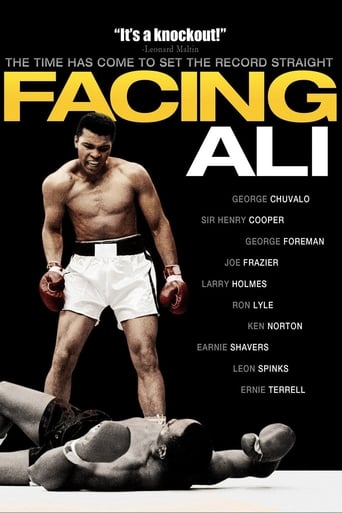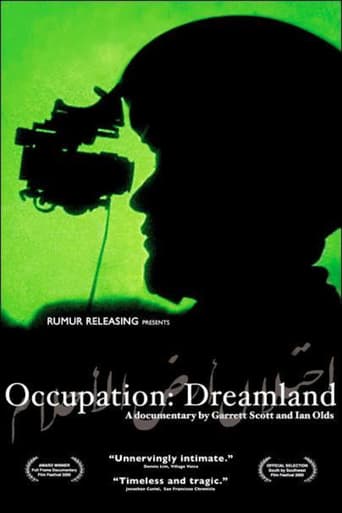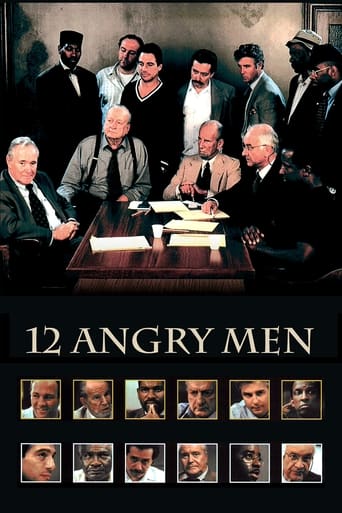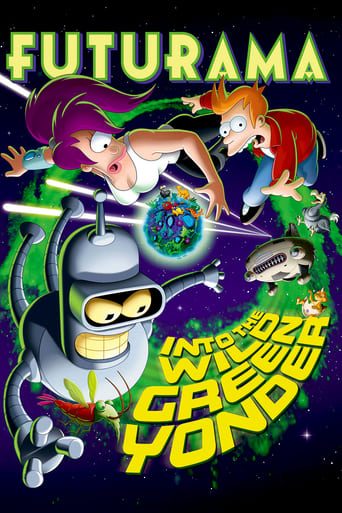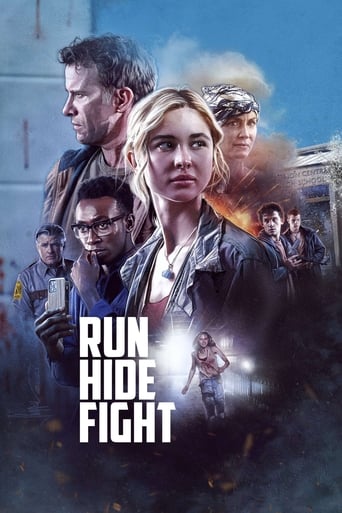


Why We Fight
Is American foreign policy dominated by the idea of military supremacy? Has the military become too important in American life? Jarecki's shrewd and intelligent polemic would seem to give an affirmative answer to each of these questions.
-
- Cast:
- John Ashcroft , Osama Bin Laden , George W. Bush , George H. W. Bush , Robert Byrd , Frank Capra , Dick Cheney


Similar titles
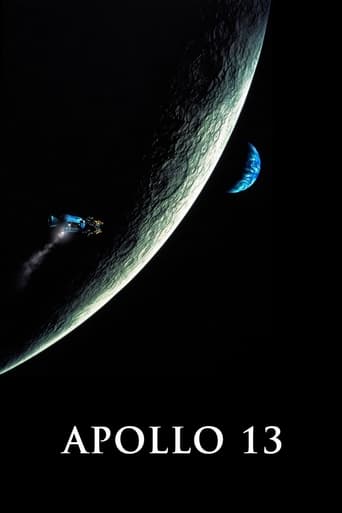



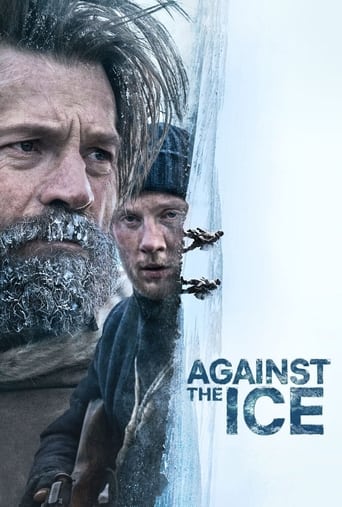
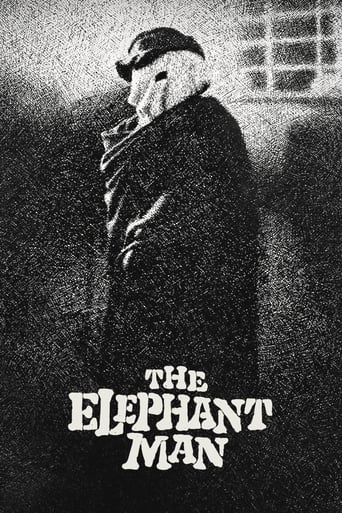
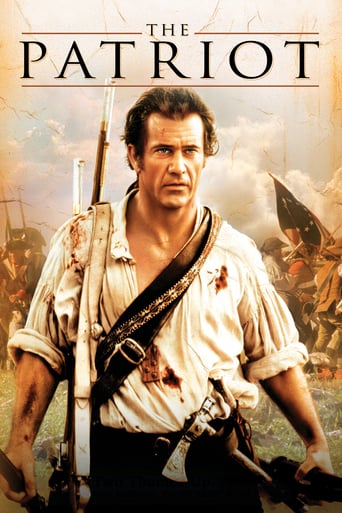
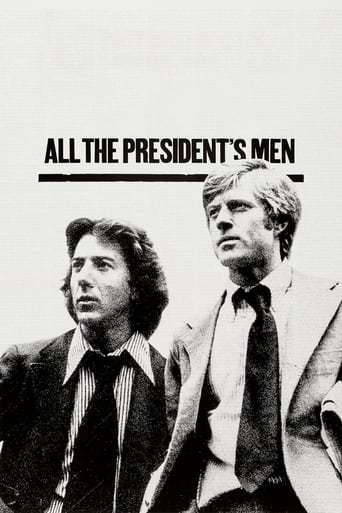


Reviews
A lot of fun.
Entertaining from beginning to end, it maintains the spirit of the franchise while establishing it's own seal with a fun cast
It’s not bad or unwatchable but despite the amplitude of the spectacle, the end result is underwhelming.
One of the film's great tricks is that, for a time, you think it will go down a rabbit hole of unrealistic glorification.
Admittedly this film makes some good points.But it is also rambling and goes off in several un-related directions. For instance there is a sequence with an interview of a young man who has decided to join the military. He gives his own personal reasons for joining (why we fight) which seem to be good and forthright. This is examining war at the personal level the rest of the documentary is taken up with examining war as a corporate venture big U.S. business making a lot of big bucks in a war.The film bounces back and forth historically from the current Iraq war to World War II and Vietnam. There are historically very different reasons for American involvement in these three distinct wars. The documentary has a 30-second montage of a world map showing everywhere in the world that the U.S. has been involved in since the end of World War II. Is this to suggest that the American evil empire is continually trying to take over the world? The film puts Eisenhower on a pedestal and cites over and over Ike's warning about the military-industrial complex having too much power. It does not mention that towards the end of the Eisenhower era the Soviets launched Sputnik. This shocked the U.S. and made them suddenly feel inferior to the Soviet Union technologically. It helped spur the Cold War and the arms race.The documentary does good to point out the bold-face lies of the Bush administration. Bush, Cheney and Rumsfeld look like buffoons mocking it up in front of the cameras. (well I guess you get what you vote for - or don't vote, for as 35% of the U.S. doesn't bother). But there are other bold-face lies in the documentary. Gore Vidal in discussing the dropping of the Atomic bomb states that the Japanese were making peace overtures to the Allies prior to the dropping of the bomb. In actual fact the Allies (Truman and Churchill) asked the Japanese to surrender and end the war in July. The Japanese derisorily dismissed this. And to get back to my original point why was the Atomic bomb brought up? Are the film-makers trying to link the atomic bomb with another American corporate venture?Another interviewer states that 'Saddam was the puppet of the U.S.'. Saddam was nobody's puppet he was his own dictator and he ruthlessly tortured and killed his own people. The same interviewer later says that Saddam was 'a one-time ally of the U.S.' this is closer to the truth.It was a sad interview with the retired police officer whose son was killed in the attack on the twin towers. It is unfortunate that he believed the Bush lie about Iraq being behind 9/11. The film does show 'real war footage' that does not show the American military in a positive light. But why can't someone just say the 'War is Hell' no matter how glossed up it is with 'smart bombs' and high-tech enterprise.
Maybe Why We Fight isn't entirely successful, as it sets out to cover about sixty years of American history (albeit mostly in the past several years with Iraq, which of course then stretches back into the 80s), and once in a while looses its footing in cramming so much into 99 minutes. Why We Fight has the potential for one of those immaculately conceived documentary mini-series on PBS (Ken Burns's The War doesn't count), but as a film it thankfully suffices just enough. The only other drawback is if you're already very well-informed about all of the horrors and nightmares that the Bush administration has brought on with its war policy- which also stretches out to its corporate allies like KBR and Halliburton- there's only little tidbits of possibly 'new' information, particularly if it's on DVD in 2008 vs seeing it in the theater in 2006.But aside from these liabilities, Why We Fight is a look at the mentality and history and fulfillment of the quasi-prophecy by then exiting president Eisenhower on the military industrial complex. The director, Eugene Jarecki, chooses his targets wisely and with a well-rounded focus. He features interviews with the likes of John McCain, Gore Vidal, Richard Pearle, former members of the military (two of whom say combat the first day of Operation Iraqi Freedom in 03), and also with just a kid setting off to join the army and a saddened father of a 9/11 casualty who despite being a veteran of Vietnam supported Bush for Iraq all the way... until he realized he lied, of course. While it is more than probable that Jarecki is out to make a criticism on the Bush administration, it doesn't really stop just there. Indeed, Bush and Rumsfeld, according to Why We Fight, are the logical (though utterly maddening) conclusion of Eisenhower's words of caution to look out against the US war machine growing too far beyond control.But Jarecki doesn't forget that Bush is just one component, however huge, in the cog of war that has been rolling along as part of the US being the dominating world power. When we don't like what a country is doing, we go in and 'help' overthrow the government and install someone else who may or may not (usually may) screw things up as a dictatorship in the country. That's one part of it. Another huge part is the Cold war and nuclear proliferation. And, finally, though not least of which, the rise of the corporations that do more (and get paid more) than the US military officers in Iraq. These and more pieces, not least of which an indictment of parts of government and think tanks and the Pentagon, are part of the answer to the "Why" question in Jarecki's film, and for the most part it's all compulsively watchable. It might be a little over-packed into such a relatively short time allowance, but there are moments of inspiration (what comes closest to a 'Michael Moore' moment, if there could be one, is Jarecki including a bit at the end of a McCain statement about Halliburton being dangerous, and then getting a call right after from Cheney cutting off the interview), and some great little clips from Frank Capra's original Why We Fight short films.
There's a sense of dreadful irony suffusing this documentary about Bush's war in Iraq. There's the case of the guy (Wilton Sekzer) whose son was killed in the 9/11 attacks. Fired with a desire for revenge, he writes the Pentagon to get his son's name put on a bomb that he hopes is dropped on those who killed his son. He's a retired cop and a Vietnam vet. He gets to see a photo of the bomb with his son's name on it. The terrible irony is the bomb is not dropped on somebody who might have killed his son. Instead it likely falls on civilians in Iraq.This up close and personal irony mirrors the larger one: Bush had little interest in getting bin Laden and those responsible for the 9/11 murders. Instead he used those attacks as a rationale to pursue a personal agenda of shock and awe so that he might be in a position to avoid the fate of his father, who was a one-term president.An even greater irony is in the title. "Why We Fight" is the name of a series of World War II films made by Frank Capra aimed at American soldiers going overseas to fight the Nazis or the Japanese imperialists. The irony is that in WWII it was clear why we had to fight. In Bush's war there was and is no clear necessity, moral or strategic, no sense of doing the right thing, of going against an enemy that would conquer us. Instead, there is just the terrible sense of waste, waste of over one hundred thousand human lives (and counting), waste of hundreds of billions of American dollars (that could have been put to better use at home)--all seemingly for the aggrandizement of one man and the twisted dreams of a handful of neocon chicken hawks drunk with power.Another irony is that of the intelligence/information officer, Air Force Lt. Col. (ret.) Karen Kwiatkowski, who learned that much of the information that she was required to disseminate and swallow was misinformation and outright lies. And then there is the irony of the young pilots who were interviewed, who dropped the bombs. One is lead to say what an honor it was to drop one of the first bombs in Operation Iraqi Freedom, an operation he saw as liberating a people, an operation that had previously been called (with telling dramatic irony) Operation Iraqi Liberation (OIL).As the documentary reminds us, World War II was fought for oil as well, but it was the Japanese who started it to secure the oil fields in the South Pacific so that they could fuel further expansion in Asia, and by the Nazis who also had little to no domestic crude to fuel their maniac dreams of world domination.What sets this documentary apart from some others (especially the somewhat shallow exercise by Michael Moore) is how the war is put in historical perspective. Director Eugene Jarecki shows how the illogic of the present meshes with that of the past as we see Rumsfeld making nice with Saddam Hussein in the days when we supported him as our dictator in the Middle East. And further removed we see the grainy ghosts of Vietnam past: John F. Kennedy, LBJ, Nixon... And then there are the many mendacious statements of Bush, Cheney, Rumsfeld, Richard Perle, Paul Wolfowitz, et al., juxtaposed against the damning analysis of military and political experts.In the final analysis Jarecki makes it clear that we fight to feed the vast military-industrial complex that Eisenhower warned us about. As someone (Chalmers Johnson, I believe) remarks, with so much profit to be made in war, you can be sure that war will follow. How else to use up the munitions so that others might be manufactured and sold?(Note: Over 500 of my movie reviews are now available in my book "Cut to the Chaise Lounge or I Can't Believe I Swallowed the Remote!" Get it at Amazon!)
We all have our answer for the question about why we are fighting a bloody civil war in Iraq and why we went there in the first place. The easy answers are oil, freedom, clear and present danger, WMD's, lies, spin, whatever however this ignores the fact that regardless of who was in the White House, American military might has rarely not been dispatched to some part of the world to enforce democracy and protect the American way of life. Jarecki puts together this film as his thesis on the wider theme of North American military might applied across the globe.When Eisenhower stepped down as US President he warned about the increasing power of those involved in the business of war and, coined the phrase "the military-industrial complex". Decades have gone by but it seems that the things that concerned him have only continued perhaps to the point where the "military-industrial complex" is no longer anything that you could point to but rather just an air of power and influence that is visible in actions far removed from the factories that make the weapons and ammunition. With this in mind, it at once seems a difficult and an easy task to make a film on the topic if it is like air then you know it is there but nailing it to the wall is near impossible.Jarecki does a good job in overcoming this challenge as he builds a convincing picture of the rise of the military might where commercial interests play a massive role in directing the political will. It is an argument that will split the audience down political lines I appreciate what Jarecki said about the topic being beyond political allegiances but this will play best to a liberal audience and will frustrate those who still (still?!) support the war in Iraq with the attitude of going to other places where they are against America and "kicking their asses". However, this is not really his fault because it is impossible to have a discussion about the drivers to war without focusing on the modern wars in Afghanistan and, most importantly, Iraq. And, as many are coming to realise, it is difficult to discuss the Iraq situation in almost any terms without being critical of the Government (including Congress) that brought it about.Another downside of Jarecki spending so much time on Iraq is that it prevents him actually achieving the goal he set out to do, which was to look back at the rise of the military complex and its influence on the decision to go to war true Iraq is a bit example of that but it is not the root nor the branch, it is just another new leaf on the tree that Eisenhower saw as a growing sapling in his time. I came away from the film yet again annoyed about the reasons for this bloody war and the blowback from it (I watched this film at the end of a weekend that saw two failed car bombs in London and a suicide attack on Glasgow airport) but what I really wanted was to feel depressed about the wider problem and understand how it has been building and why it has been building. As it is, Jarecki doesn't use enough material pre-Bush and too many of his points are tied up in the emotion of the current conflict (in Iraq but also political conflict). By doing this he runs the risk that few viewers will be coming to the film with a clean slate, ready to listen I imagine most people come in with their minds already made up (which I suspect is why the votes on the site are so high he is preaching to the converted).It is still an interesting film though and is depressing because I have no doubt that business influences all aspects of Government and have seen little to convince me that military spending would be any different. However, like many others, Jarecki gets bogged down in the issue over Iraq and his film becomes more about that than the wider historic picture that would have made for a more compelling and less controversial way to make the same argument.


